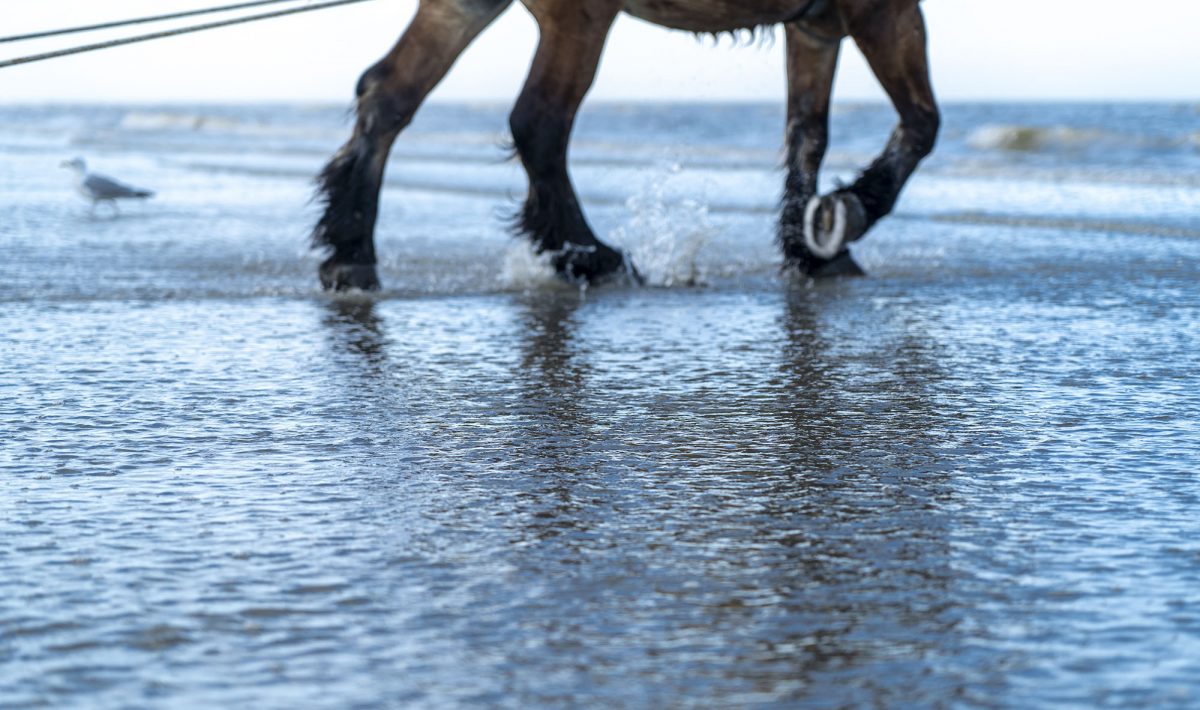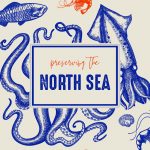Maiden Voyage
Today we cast off on an unexpected voyage. An odyssey around the North Sea in search of sustainable fishing, food and tradition. There are only two of us right now, but we want to bring you along for the ride.
I’m Joseph, a global hobo from the United States. I’ve already been on the road for 2 years: from Asia to Africa, Europe to South America. It begin in 2018 when I left Colorado like an explorer of the past: without a destination in mind, with only a desire to discover something new. I visited Buddhist Monasteries in Sri Lanka, organic farms in Malaysia and Italy, the heart of the Amazon rain forest, and so much more. The journey inspired my blog and image production company, Verse-Maker Productions. It also manifested in gallery exhibitions of my video work and the publication of photos and words in newspapers and magazines in Belgium and the United States. In the end, my quest across continents left me marooned in the city of Antwerp in the spring of 2020, still searching for a final destination.
And so the Great Pandemic of 2020 can take a great deal of credit for the seed of the story that we will be chronicling. When the borders closed, I was in Belgium. Having few friends and even less of the dutch language to help, I felt pretty lonely and secluded, like so many of us did. Living in an old, illegally squatted building on the Scheldt River I spent most of my time peering out over the banks of the river, bemoaning my situation. I imagined the boats, trawlers and trap setters, that once coursed those rushing waters. I wanted to find one then; one that could take me away on another voyage. The building where I lived had just decades before been the border patrol office of the Netherlands in Belgium. Until only recently sailors and skippers passing through would check in with the government and spend a night sleeping in the same meager room I found myself renting for a song. My room, and others like it, was located in the heart of the red light district. I wondered if the shabby 3 story house I was living in may have been the very building that gave the neighborhood its name in Dutch: ‘t Schipperskwartier–the shipman’s quarter. There was an irony in all of it, I thought. How was it possible that after years of travel I had been stranded in a place built for travelers in the middle of their own oceanic adventures?
Empty the Fridge Joins the Crew
Through one of the few acquaintances that I infrequently saw during the lock-down, I happened to meet Jennifer Schleber. She was a food blogger and already the author of one cookbook. Her blog, Empty the Fridge, was focused on preventing food waste through creative recipes. She used the peelings of vegetables for delicious sauces. She squeezed pineapple husked into mason jars to make vinegar. She used fish bones to make broth. She’s motivated to stop waste and, therefore, she’s thinking of sustainability. The blog became so popular, it was turned into a cookbook. This style of no waste cooking intrigued me. We began to meet each on the weekends to try new recipes, take photos and make films for the blog. Those meetings were some of the few times during the lock-down that I felt social and less alone. They were the only times I still felt like I was touring Europe: trying local Belgian and Dutch recipes she would whip up like a pro. But I wanted more. I had a secret agenda: inspired by my house on the river and its former occupants, I wanted to try some local fish.
Waiting in line at he Nieuwe Vishal, The New Fish Market, on the south side of Antwerp was my initiation into the world of North Sea cuisine. Perusing the ice-lined cases through that window, I was treated with an array of colors and shapes. Long eels sat beside pink salmon. Irridescendent garfish spilled over crusty oysters. Octopus tentacles spiraled towards snow white filets of halibut. Standing there churned my imagination like the waves of the sea against the sand. Each week I would choose something new, something, that to me at least, seemed exotic. The cold waters of the North Atlantic are the home to fish I had rarely encountered in the Midwest of the United States. And they held a mythological power over me. Who had caught these wild creatures? How did they do it? What are their stories? Where did the recipes come from? Who had devised them? And why, suddenly, in only the last few decades, have fisheries depleted so far? The fish shop therefore became more than just the entry point for mealtime, it became the port from which I could venture forth to discover histories, ecologies, and cultures: even while I was still marooned in that silent city.
After making my selection at the shop, I would surprise Jennifer with a strange fish to prepare as we worked on new content for the blog. The fish became as much an inspiration for her as it was becoming for me. Pulling a plaice or a ray from the bag would stimulate her creativity in the kitchen. Soon she’d be searching for traditional recipes online or fusion-inspired contemporary takes locked away in her vast collection of cookbooks. When we had leftovers, we searched too for ways to store the fish for the next time we met. Brining and canning in the kitchen became a hobby. Drying on the terrace became a pursuit.
Preserving the North Sea
Over the many weeks of the lockdown, we began to seek answers to some of our questions about the sustainability of fisheries in the North Sea. We discovered small-scale fishers around the sea. The kippers in the British Isles, the gravlax in Sweden, and horse fisherman in Belgian. And we learned of still other traditional methods of fishing still being done today that respect the sea, the fish, and the future. Methods that askew the contemporary systems that have anhilated large populations, even generations, of fish stocks in the open sea. We were shocked by the fisheries crash in the second half of the 20th century, the near extinction of dominant species like the sturgeon, and the continued use of damaging large-scale fishing systems like electro-pulse fishing of today. And we become obsessed with techniques for keeping fish: methods like smoking, curing, and pickling that pre-date modern refrigeration, which, as you’ll learn, may be one of the most damaging weapon humans have devised for destroying fish populations.
And we’re still curious, as the borders slowly begin to reopen. Our plan: take to the coastline and keep exploring. We’ll start with short trips to the nearby Belgian coastline. Later we want to take a massive road trip, circumnavigating the whole of the sea: Norway, Sweden, Denmark, Germany, Holland, Belgium, France, England, and Scotland.
This blog will describe a culinary quest that will take us to many traditional seaside villages where sailors still ply the waters as they always have, where grandmothers still preserve the fish with the wisdom of generations and where, finally, the North Sea itself must be saved for the future once and for all. Jennifer will post recipes that follow the story of our travels. She’ll explain methods for preserving fish like how to smoke trout in a city apartment. She’ll post interviews of fishermen and chefs we meet along the way. And she’ll create graphics to help you make more sustainable choices for your plate. I’ll be sharing photos and videos from our trips. Posting travelogues detailing our stops by the sea. And sharing research about the people and places we encounter who informs us on ways to maintain a sustainable relationship with the sea.
As we observe gill-nets, gag on surstromming, and experiment with wood smokers and clay jars, we’ll share with you the photographs, biographies, and the recipes that we discover. Join us on a voyage around the oceanic kitchen of the great nations of northern Europe.





Recent Comments